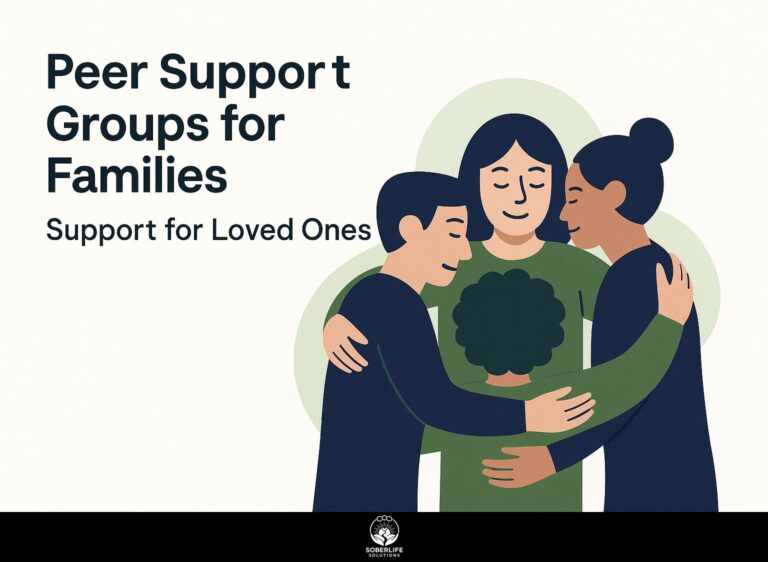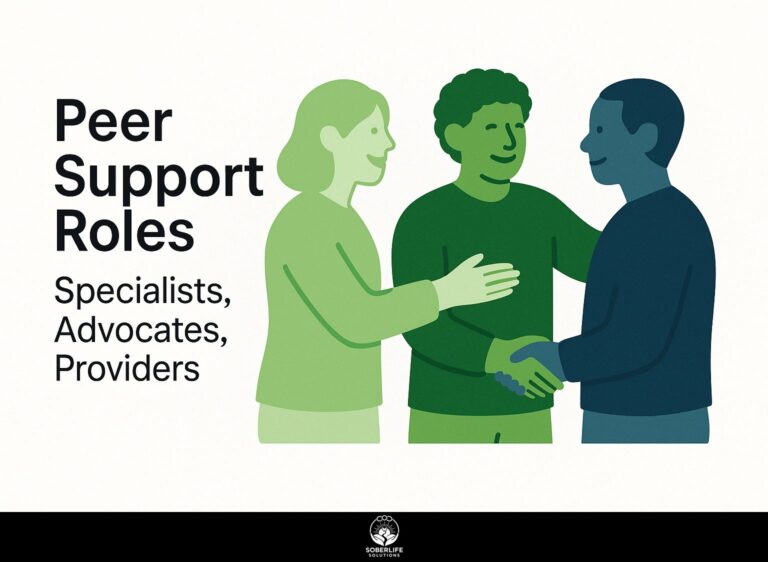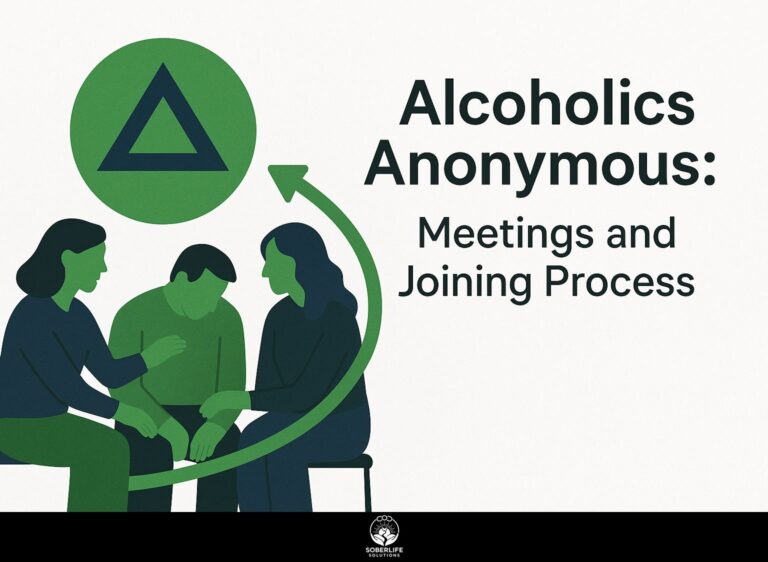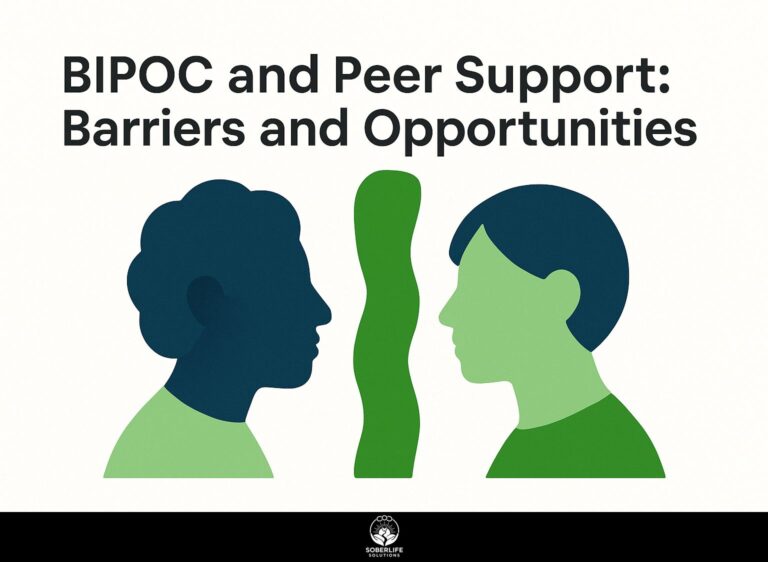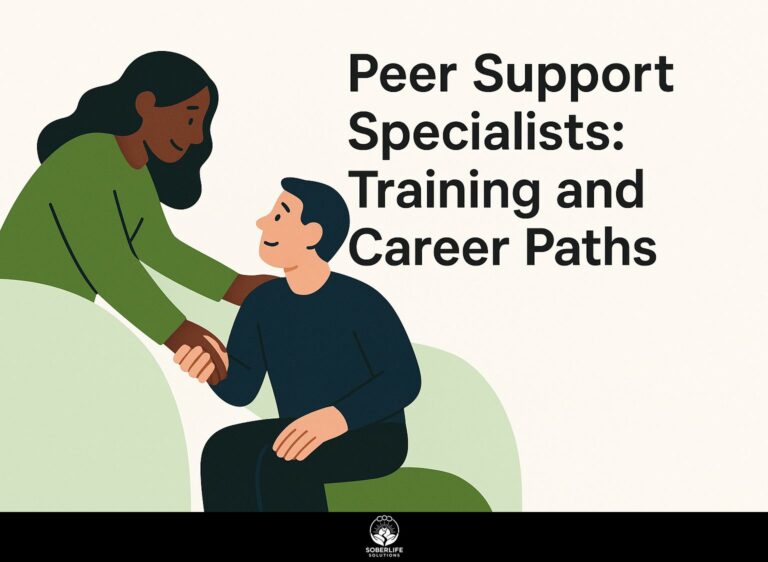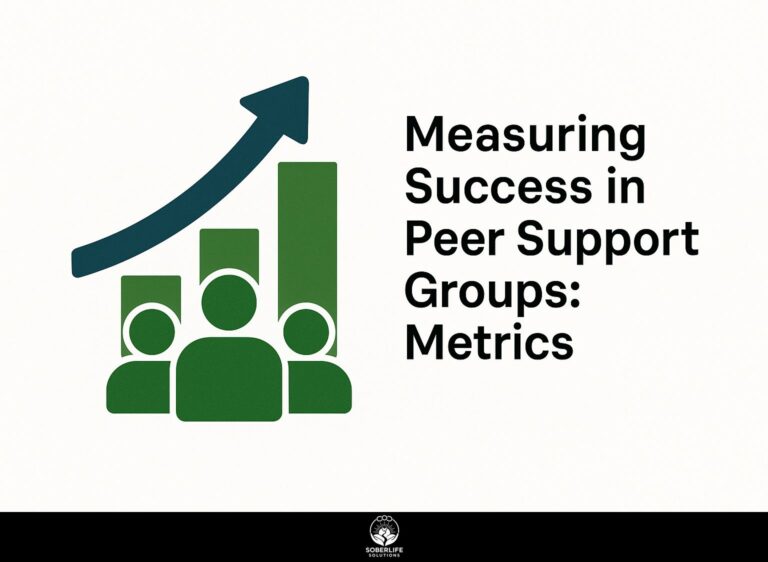LGBTQ+ Peer Support Groups: Specialized Community Support
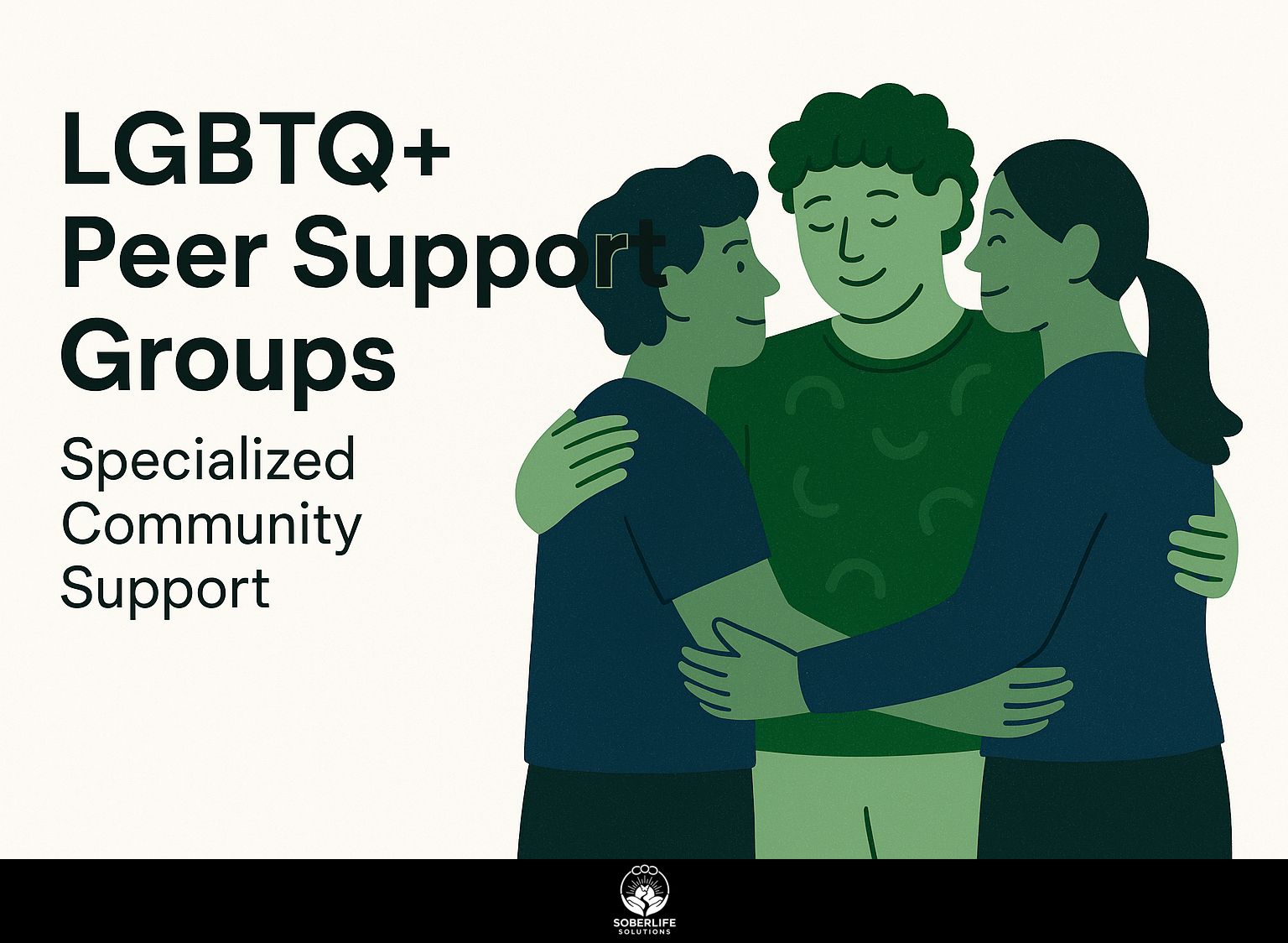
Figuring out sexual orientation can be challenging. LGBTQ+ peer support groups offer essential emotional support and relationship skills for those who need them. Leading the way is Peer Seattle, where people such as Leah Raisor create a welcoming environment for building relationships. This article discusses the role of these unique groups, showing how they support the LGBTQ community and offer essential resources for personal development and strength.
Key Takeaways:
Importance of Peer Support
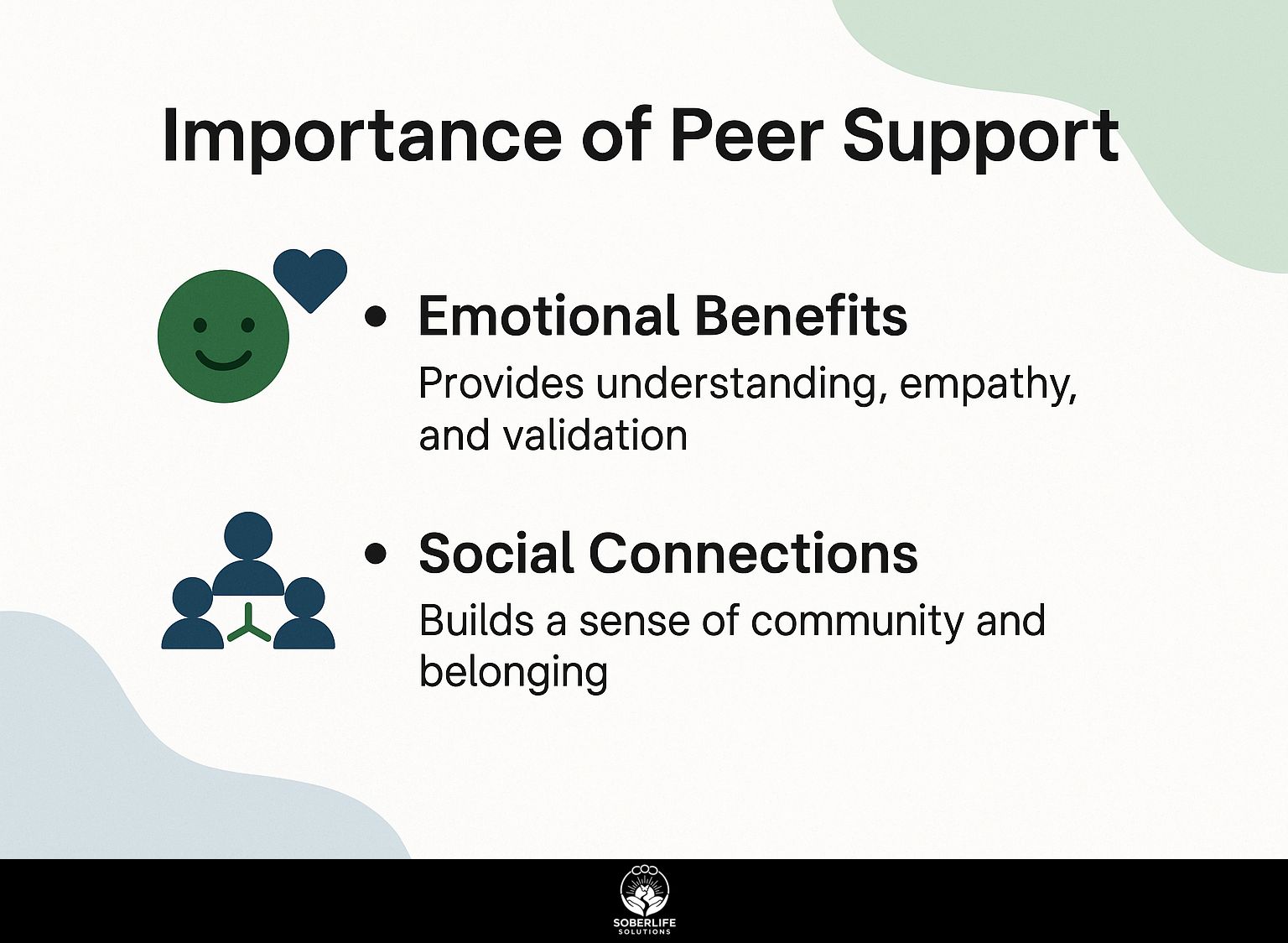
Peer support greatly improves mental health and well-being by offering safe places for people to meet and talk about their experiences. A major review by UCL underscores the effectiveness of peer support in enhancing mental health outcomes, highlighting its pivotal role in fostering community and understanding. For those interested in tailoring support to specific groups, peer support groups for young adults offer unique opportunities to address their distinct challenges.
Emotional Benefits
Participating in peer support groups allows LGBTQ+ individuals to manage emotions, reducing feelings of isolation and providing a sense of belonging.
These groups offer a structured environment where individuals can share their experiences and challenges. Attending a weekly meeting at a community center can help members talk about common problems and strengthen their connections.
Using online sites like Meetup can help you find groups that match your interests or demographics. Research indicates that 70% of participants in structured peer support reported improved self-esteem and reduced anxiety.
Regular participation can offer key methods for dealing with social stress, improving general health and happiness.
Social Connections
Peer support groups help LGBTQ+ individuals make friends and create networks, strengthening their community ties.
These groups often host regular events, such as monthly meetups or workshops, where members can share experiences and engage in meaningful discussions.
For example, a local support group in San Francisco noticed a 40% rise in attendance by planning social events and themed talks, helping members form stronger connections.
Online platforms like MeetUp or Facebook Groups facilitate broader outreach, allowing individuals to join virtual support sessions.
These groups provide areas for conversation and friendship, which increases community morale and encourages inclusivity.
Types of Peer Support Groups
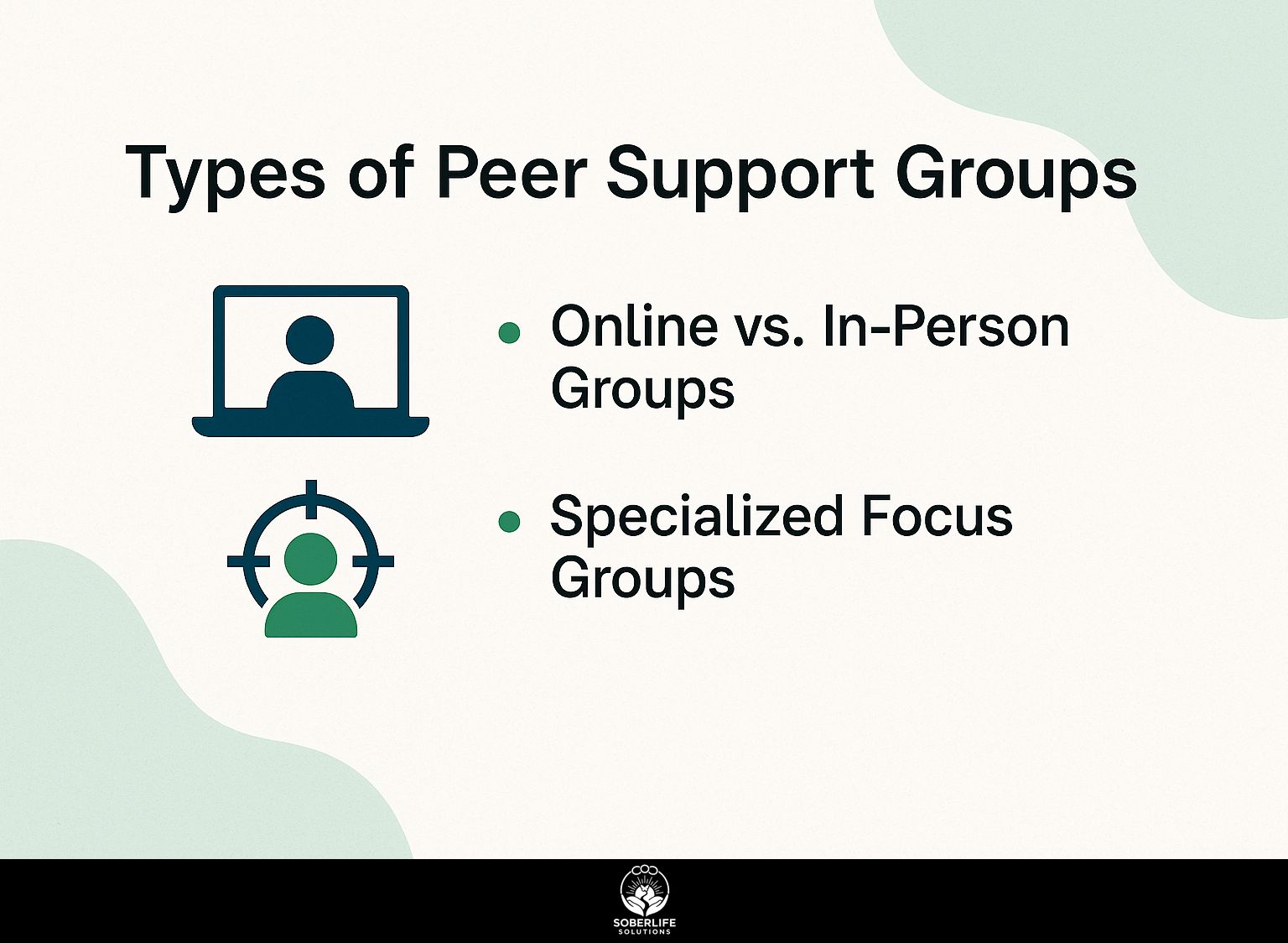
LGBTQ+ peer support groups are available both online and in-person, meeting different needs and preferences. Curious about how peer support groups can also benefit families? Our guide offers insights into the support available for loved ones.
Online vs. In-Person Groups
Online groups offer convenience and anonymity, while in-person groups provide deeper emotional connections and community engagement.
When comparing these two formats, consider the following benefits.
In-person groups often have an 85% satisfaction rate regarding belonging, as members find it easier to connect face-to-face. Online groups excel in accessibility, allowing participants to join from anywhere at any time. They allow for a variety of viewpoints because where someone is located does not restrict participation, as noted by Frontiers in Digital Health.
Consider these characteristics according to your personal needs for flexibility and building connections, as both choices can greatly improve support and encouragement in different ways.
Specialized Focus Groups
Special focus groups are designed for particular identities and experiences, improving support that is customized for the distinct issues faced by the community.
For example, a focus group for transgender women might offer a secure environment for discussing healthcare access and legal challenges specific to their experiences.
Meanwhile, LGBTQ+ youth groups often create environments for sharing challenges related to acceptance and identity formation.
A successful initiative, such as the `Trans Voices’ focus group, facilitated discussions that led to local advocacy actions, improving access to healthcare resources.
Tools like online surveys and moderated discussions further supported engagement, allowing participants to share their stories and needs effectively.
How to Find a Support Group
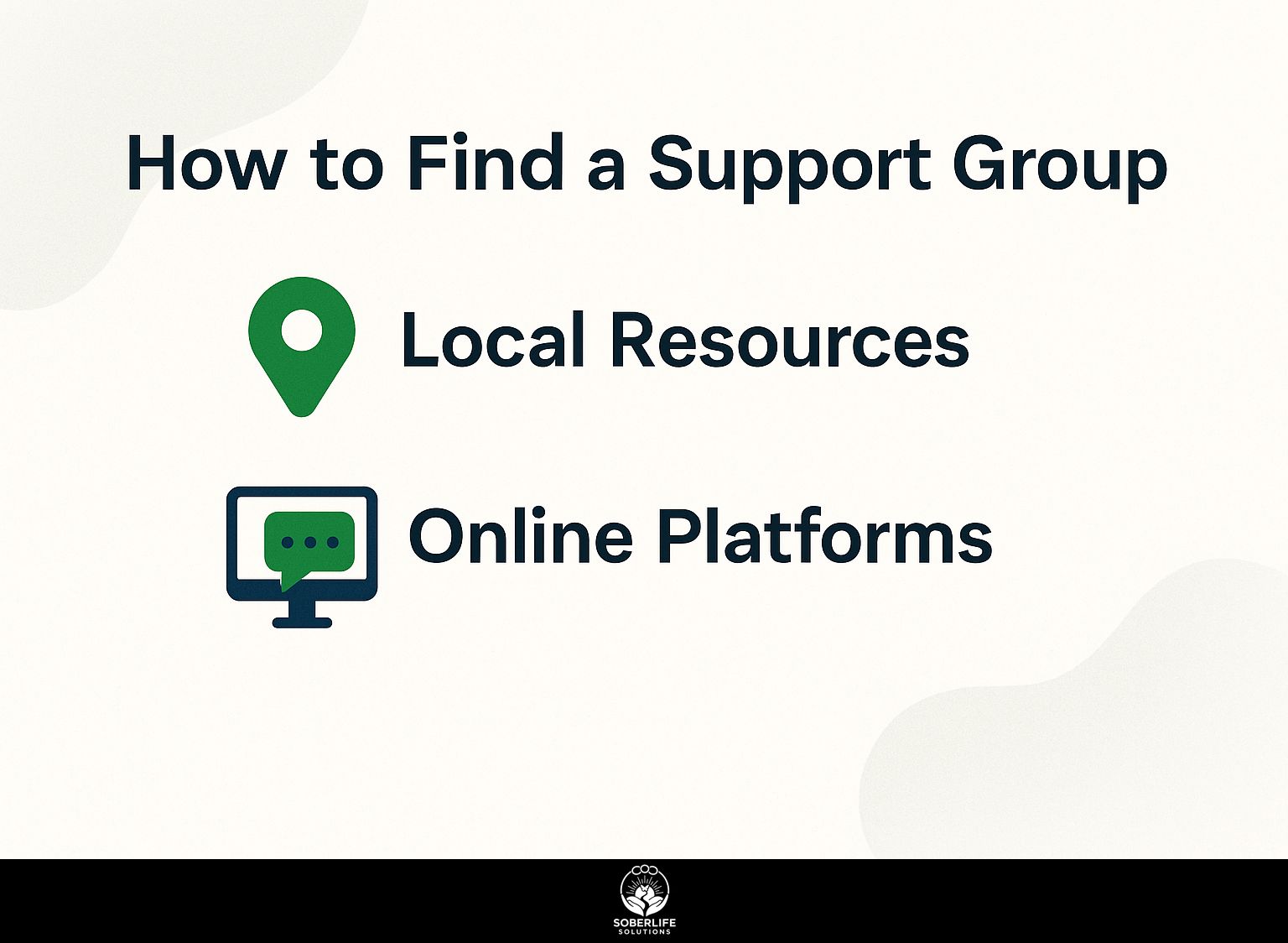
Look for an LGBTQ+ support group by checking local resources and online platforms designed for the community.
Local Resources
Organizations like Peer Seattle and South Bay Youth Center provide important support and resources for LGBTQ+ individuals wanting to meet others.
Peer Seattle has different programs, such as support groups and social gatherings. You can learn more by checking their website or going to their weekly meetings.
The South Bay Youth Center hosts creative workshops and offers mentorship opportunities specifically for LGBTQ+ youth.
Both groups frequently participate in community events, supporting members to connect and advocate for their rights.
Engaging with these groups can help individuals build friendships and find allies within the community.
Online Platforms
Online platforms like Reddit, Discord, and Telehealth services facilitate easy access to support groups for LGBTQ+ individuals around the world.
These platforms provide certain groups with services designed for different requirements. On Reddit, subreddits like r/lgbt provide a welcoming space for discussion, while Discord offers real-time chat rooms for more interactive support.
When using Telehealth services, find counselors with experience in LGBTQ+ topics for caring and knowledgeable support. To join safely, begin by observing the discussions to understand the community culture. When you feel at ease, share your experiences or ask for advice.
Remember to set privacy boundaries, such as using a nickname or limiting personal details until trust is established.
Creating a Safe Space
Creating a safe environment in peer support groups is key to encouraging honest communication and trust among members.
To establish this environment, start by implementing confidentiality agreements, ensuring all members understand and commit to the importance of privacy.
Next, set clear communication guidelines that promote respectful dialogue-encourage participants to listen actively and speak from their own experiences.
Use inclusive methods, like routinely asking for feedback on how the group interacts and being aware of different viewpoints.
These steps strengthen trust and create a feeling of belonging, which is important for successful peer support.
Challenges Faced by LGBTQ+ Individuals
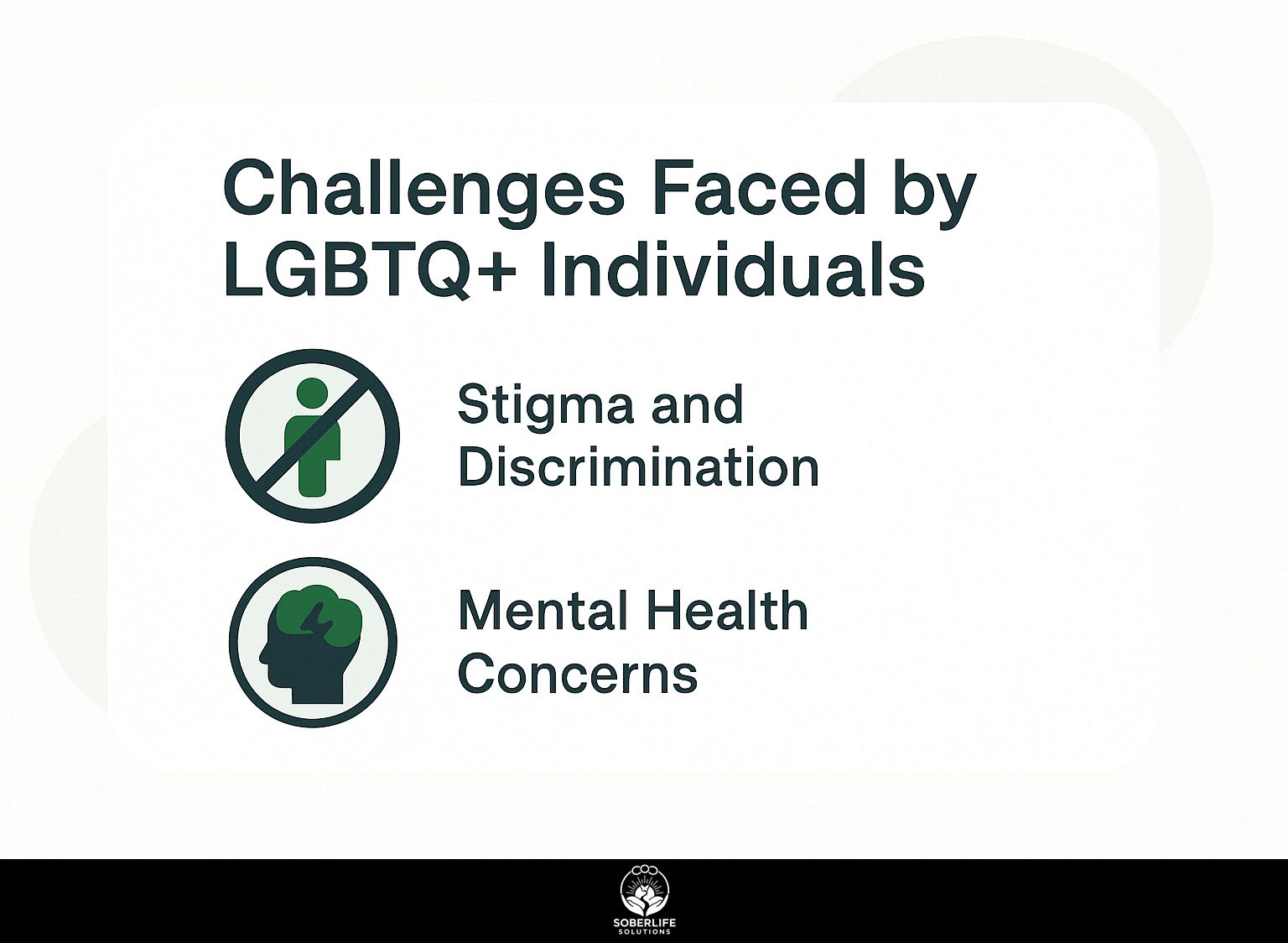
People who are LGBTQ+ often deal with specific issues such as stigma, discrimination, and mental health problems.
Peer support groups can help with these problems.
Stigma and Discrimination
Stigma and discrimination remain significant barriers for LGBTQ+ individuals, impacting mental health and community engagement.
Research indicates that LGBTQ+ individuals experience mental health issues at rates nearly three times higher than their heterosexual counterparts. For example, a 2022 study highlighted that 40% of LGBTQ+ youths reported serious psychological distress, supported by findings from The Trevor Project.
Stories from individuals show the impact of discrimination; one person shared being rejected by their family, which resulted in intense anxiety and depression.
Tools like therapy, support groups, and community outreach programs are important for offering ways to deal with challenges and develop strength.
Creating safer schools and workplaces can lower stress and promote a sense of belonging.
Mental Health Concerns
Many LGBTQ+ individuals experience unique mental health concerns, including higher rates of depression and anxiety compared to their non-LGBTQ+ peers.
These challenges are often exacerbated by social stigma and discrimination, contributing to feelings of isolation. Statistics reveal that approximately 40% of LGBTQ+ youth seriously consider suicide, highlighting the urgent need for accessible mental health resources.
Environments that offer support are important for getting good results. Finding therapy from professionals who know your culture and joining peer support groups can really help.
Groups such as The Trevor Project and local LGBTQ+ community centers provide support and safe places, helping people connect and stay strong. Participating in these peer support initiatives can help alleviate feelings of isolation and promote mental well-being.
Success Stories and Impact
Success stories from LGBTQ+ peer support groups show the strong effect these communities can have on people’s lives.
People often talk about life-changing moments that show how they have grown and feel better mentally.
For example, Alex, a transgender man, said, “Joining this group helped me see I’m not alone; I’ve made friends who get what I’m going through.”
Jamie, who is bisexual, said, “The support I got here has been really helpful; it feels good to be part of a group that welcomes people from different backgrounds.”
These testimonials highlight how these groups help build stronger community connections and improve general health.
Frequently Asked Questions
What are LGBTQ+ peer support groups?
LGBTQ+ peer support groups are community-based support groups that provide a space for individuals who identify as LGBTQ+ to come together, share experiences, and support one another. These groups are facilitated by trained professionals or volunteers who understand the unique challenges and needs of the LGBTQ+ community.
What makes LGBTQ+ peer support groups specialized?
These support groups are designed to meet the needs of the LGBTQ+ community. They provide a safe and inclusive space for individuals to discuss their experiences and find support from others who understand and share similar identities, struggles, and concerns.
Who can benefit from LGBTQ+ peer support groups?
LGBTQ+ peer support groups are available for anyone who identifies as LGBTQ+ and wants a safe place to talk about their experiences and get support. These groups can be especially beneficial for individuals who may not have a strong support system, are struggling with their identity, or facing discrimination and prejudice.
What can I expect from a LGBTQ+ peer support group session?
In a typical support group session, you can expect a safe and inclusive environment where you can share your experiences, feelings, and concerns with others who understand and can offer support. Sessions may involve group discussions, activities, and occasionally guest speakers or special events.
Are LGBTQ+ peer support groups confidential?
Yes, confidentiality is a key aspect of these support groups. All individuals participating in the group are expected to respect and maintain the privacy of others. Confidentiality cannot be assured if there is immediate danger or risk to someone.
How can I find a LGBTQ+ peer support group in my community?
You can start by searching online for LGBTQ+ support groups in your area, reaching out to local LGBTQ+ organizations, or asking for recommendations from a healthcare provider or therapist. You can also inquire with friends or acquaintances who may be involved in the LGBTQ+ community.

